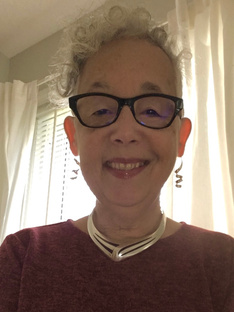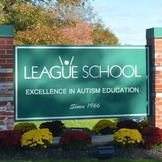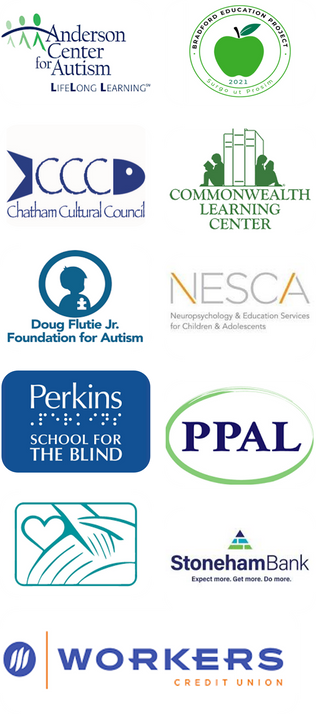
Special Needs
Advocacy Network, Inc
In This Issue:
Letter from the President
Programming Events
Membership Updates
Our mission is to provide advocacy, education, and other actions that empower all families, professionals including advocates, and others with an interest, to enable students with disabilities to reach their full potential.
President's Letter
Spring is often associated with change and new beginnings. As we dive into spring, there have been some changes here at the Special Needs Advocacy Network.
Cynthia Moore has resigned from her position as president. I would like to thank her for her almost two years of service in this position and her many years prior in other positions.
Cynthia has led the organization in laying a foundation that will allow us to grow and expand in alignment with our purpose and mission. Jessie Brauer (VP of Programming), Victoria Crisp (Treasurer), and Kathy Davidoff (Member-at-Large) have resigned as well.
We thank them for their service and hard work to further the work of the Special Needs Advocacy Network.
Through the line of succession, I, Samantha Storey have assumed the role of president. We have also been joined by Beth Tremblay-Hall (Treasurer) and Jennifer Rutland (Member at Large). I would like to thank both of them for their willingness to be appointed to the board of directors and look forward to working collaboratively with them and the rest of the board in order to support and empower all those involved or interested in advocating for youth with disabilities.
We have launched a members only forum. You are invited and encouraged to log into your membership portal and visit. This is a place to share resources and information outside of social media. Utilizing the forum, will provide opportunities to learn, network and share information with others.
As a small board, we have taking steps toward actualizing our strategic plan, but we could use your help! I invite you to share our different membership types with others. We have introduced several new memberships over the last 18 months. These include Family/Educational Decision Maker, SEPAC, Sponsorship, and Supporter Memberships. Do you know someone that would be interested in attending our upcoming workshop in May or viewing our past workshops, but may be hesitant due to finances? Through several generous organizations, we are pleased to be able to offer close to 200 Scholarships in order to enable qualifying families and SESPs to attend workshops for free. Email info@spanmass.org for more information.
I look forward working with all of our members!

Navigating Pre-ETS and Transition from High School and Beyond
Navigating Pre-ETS and Transition from High School and Beyond
When the US Congress reauthorized IDEA in 2004, they identified the Purpose of the statute was to ensure that all children with disabilities have available to them a free appropriate public education that emphasizes special education and related services designed to meet their unique needs and prepare them for further education, employment, and independent living.
In other words, IDEA's explicit purpose, according to Congress, is postsecondary education, postsecondary employment and independent living to the greatest extent possible. Using both transition assessments and strategies, this session informs parents, advocates and attorneys how they may use IDEA's requirements for, and the definition of, postsecondary transition planning for a coordinated set of activities within a results-oriented process that is focused on academic and functional achievement to obtain and ensure a FAPE for their students. A FAPE that aligns with the person-centered planning requirements of the 1999 Olmstead v L.C. SCOTUS decision.
If you require accommodations to participate in one of our events, please contact us as soon as possible in advance of the event, at info@spanmass.org, so we have the opportunity to support your participation.
March Webinars
May Webinars

presenter
Christopher Skerritt
professional Vocational Rehabilitation Counselor with more than 10 years of experience particularly in the areas of AAC and assistive technologies and postsecondary transition assessments.
Friday, May 19, 2023
10:00 A.M. - 3:00 P.M.
Zoom Webinar

Lunch & Learn Book Study
This is a members-only event
We will meet to discuss a section of the book:
Special Education Law
by Peter and Pamela Wright.
Along with this, we will look at where the state regulations fit in.
Come and network with others while discussing this book and how the sections can apply to your advocacy.
Lunch & Learn Book Study
This is a members-only event
We will meet to discuss a section from the book:
From Emotions to Advocacy
by Peter and Pamela Wright
Through these discussions, we hope that you will take away tools to plan, prepare, and organize your advocacy efforts. This book is a great tool for both parents and advocates.
If you require accommodations to participate in one of our events, please contact us as soon as possible in advance of the event, at info@spanmass.org, so we have the opportunity to support your participation.
February Member Events
May Member Events

host
Special Needs Advocacy Network
Thursday, May 4, 2023
12:00 P.M. - 1:00 P.M.
Zoom Webinar

HOST
Special Needs Advocacy Network
Thursday, May 11, 2023
12:00 P.M. - 1:00 P.M.
Zoom Webinar
Free workshop attendance scholarships can also be applied to on-demand recordings.
On-Demand Events



webinar
with Matthew Engel
webinar
webinar
Marketing Coach.
Founder of Eagle Business

Through our generous Equity Sponsorships, free admission to our 2.5-hour and full day workshops are available to individuals living anywhere in Massachusetts.
Families representing one or more of the following categories qualify for this funding:
- Refugee or immigrant status
- Immediate family includes an SSDI/SSI recipient
- Family income is at or below 600% of the Massachusetts poverty limit
- Family is homeless or experiencing some form of housing instability
- Family includes a loved one with autism
Other unique and extenuating circumstances (contact us to discuss)
Please email info@spanmass.org for more information or to obtain the promotional code to waive the workshop fee at registration.

Vici Tukiyem
Marketing Coach.
Founder of Eagle Business
Equity Sponsorships
If you know of an individual who meets any of the criteria above, and could benefit from free workshop admission, please encourage them to email info@spanmass.org to receive a unique access code for use at registration.

in the news
In the News

Targeted Intervention That Can Reset the Student’s Trajectory
Katherine Marsh, Ph.D.
Lead Teacher, Commonwealth Learning Center
When we set up a physical target, the greatest success in hitting that target comes when the target is large, close by, and easy to recognize. In education, the second and third criteria make sense, but the first is often a problem. Educational targets that are large-scale and comprehensive are harder to meet because in practice they require extra work to break them down into manageable steps. When it comes to targeted interventions, particularly ones that can reset a student’s overall trajectory, it may make sense to keep the targeted intervention smaller, measurable, accountable, and well-supported. This is not to say that we shouldn’t be ambitious in defining goals for the student—just that ambition alone is unlikely to lead to success. A smaller target in math could include a return to where a concept transitioned from the representational to the abstract, such as the link between division as an array to a partial quotients model. In reading, a smaller target could include a comparison between identifying inferences in narrative stories to identifying inferences in persuasive text. With executive functions, a smaller target could include a change in the homework environment to reduce distractions.
Targeted interventions also work best when they are personal because personal targets are portable: students carry them in their minds because they are meaningful. It would be nearly impossible for teachers to personalize entire curricula (though I have seen some try). However, personalization becomes more doable when we involve the student and parent in identifying areas of interest. Creating a written expression target for a student to write a minimum number of sentences for a paragraph? Try sentences about her interest in NASCAR racing. Know a student struggling with math word problems?
Ask him to create his own word problems about the Bollywood dance steps he’s learning. Working on establishing a new habit with a student who struggles to complete homework assignments? How about having them “habit stack” or append the new habit to a preferred activity they already do every day?
I am not suggesting that these targeted intervention examples would be the complete set of interventions offered to the student. The idea is that once a student experiences some success with reaching a target using a personalized intervention, other targets become more visible and motivation increases. Resetting a student’s trajectory starts with just this type of small, targeted success. Targeted interventions that are smaller and personalized are accessible to students while fitting into any curricula, method, or program that teachers currently use. Such interventions recognize the student for who he is at that moment. Over many years of working with students I have noticed an odd phenomenon: students do not seem to like being different from their peers; however, they do seem to enjoy being unique. Targeted interventions that are smaller and more personalized resonate with a student’s desire to be her unique self and may well lead to resetting that student’s entire trajectory.

Given the theme of the art show, students are asked to submit original artwork representing their vision for their own future, their “Outcome.”
This can take many different forms and is open to interpretation.
We encourage creativity!
Students are invited to describe both the beauty and the challenges of their life and to define their vision for the future.
We kindly ask that all submissions adhere to these specifications:
Two-dimensional still image (artwork may be digital or traditional, for traditional and/or 3-D art, we ask that you submit a high-quality image of the artwork)
JPG or PNG format, max 100MB, high-quality image
Include (either in email body or separate attachment) child’s full name, age, hometown, as well as a brief (1-5 sentences) explanation of their artwork (may be edited for length, grammar, typographical errors, etc.)
No vulgarities or offensive language
One submission per student
Special Needs Advocacy Network
2023 Virtual Art Show
"Outcomes"
in the news
submissions DUE MAY 22ND
Submissions will open on
April 10, 2023
and close on
May 21, 2023 at midnight.
We ask that all submissions be emailed to artshow@spanmass.org.
Everyone who submits artwork to this show will be sent an electronic legal agreement transferring the rights to the artwork and accompanying description from the artist to the Special Needs Advocacy Network which will require an electronic signature from a parent or legal guardian for the submission to be complete.